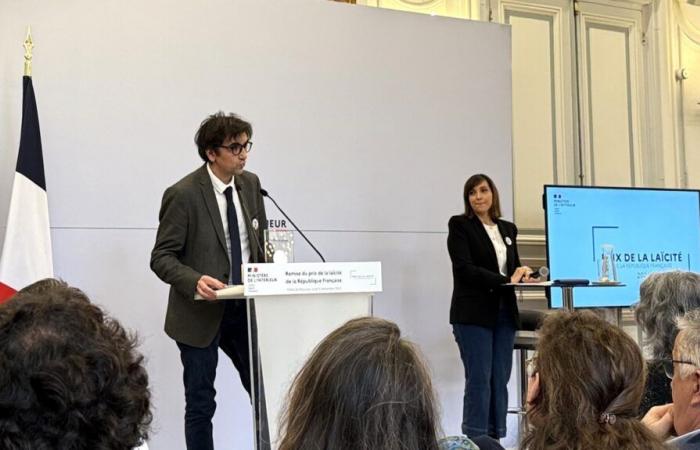
Who do you have in history? This formula which flourishes at each start of the school year is also the title of the podcast created by Tourangeau Stéphane Genêt, associate professor and doctor in history and teacher at the Choiseul high school in Tours. The 108e episode of this podcast “which makes you love history”anchored in school programs, was crowned Monday, December 9 with the Secularism Prize. “Official recognition” which Stéphane Genêt happily welcomed under the auspices of the Ministry of the Interior. A popular success confirmed by the figures: the show reached four million cumulative listens this week.
We have blocked the display of this content to respect your cookie choices. By clicking on “Accept”, you accept the deposit of cookies. You can change your choices at any time by going to this page.
Accept
From classrooms to the general public
This podcast, each episode of around fifteen minutes, explores a theme covered in the history program in a very educational way, was born during the confinements in 2021. “The idea came to me from virtual classes: I sometimes felt like I was talking to myself in front of my computer and I told myself that the content could perhaps be of interest to people other than my students”traces Stéphane Genêt.
Author of books, editor of school textbooks, co-creator of the Salon de Choiseul meetings, regular collaborator of the YouTuber Nota Bene, the teacher is used to presenting his subject on all types of media. This time, the podcast stands out as the format best suited to this desire to “transmit the essential in a limited time”.
From the first episode dedicated to the Berlin blockade, to this 108e on the 1905 law and the separation of Churches and State, the concept was affirmed. “You can hear it, the equipment I use has evolved, the sound is better. I might insert more music or sound clips but in terms of writing it hasn't really changed.”considers the author. Keeping the spirit of his courses the structure and rigor, he delivers them “the main elements, the salient axes and some anecdotes”.
Which makes it a perfect tool for “revise your lessons on public transport, prepare for your certificate or baccalaureate, help your children, work in class and simply for the pleasure of discovering pages of History”, very aptly depicts the description of the show. “At the beginning, I had imagined addressing mainly a school audience, students and teachers, shares the history teacher. Today, I realize that it reaches a much wider audience. »
A reference for popularizing history
And if his students “sometimes roll their eyes to the sky” when he advises them to listen to his podcast to extend a lesson, Who do you have in history? is on the way to becoming a benchmark podcast in the large family of popular history broadcasts. Proof that the public is there: the episode awarded Monday by the Ministry of the Interior was already flirting with 60,000 views two days after its broadcast.





